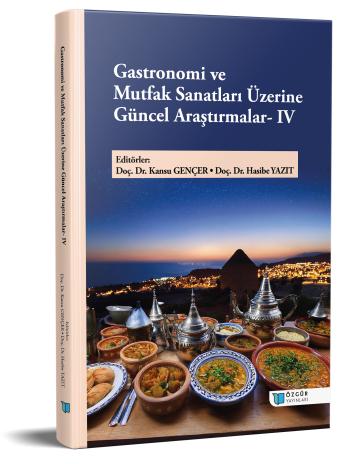
Gastronomy Tourism and Effective Marketing Strategies
Chapter from the book:
Gençer,
K.
&
Yazıt,
H.
(eds.)
2025.
Current Research on Gastronomy and Culinary Arts IV.
Synopsis
Gastronomy tourism is a rapidly growing and increasingly popular form of tourism today. Tourists are not only interested in visiting natural and historical sites but also show great enthusiasm for exploring local cuisines. This trend highlights the significant opportunity that gastronomy tourism offers to destinations, and it demonstrates that these opportunities can be optimized through effective marketing strategies. Local dishes and traditional cuisines serve as valuable resources for both cultural experiences for tourists and economic development.
Gastronomy tourism also contributes to sustainable development goals. Supporting local food producers, reducing environmental impacts, and improving the quality of life for local communities are among the environmental and social benefits of gastronomy tourism. Furthermore, the effective use of digital marketing strategies plays a crucial role in promoting gastronomic destinations on a global scale. Digital platforms and social media have a substantial impact on the sharing and promotion of gastronomic experiences.
The successful development and marketing of gastronomy tourism contribute not only to economic but also cultural development. Promoting local cuisines and gastronomic events provides tourists with unique experiences, thereby increasing repeat visit rates and strengthening regional tourism networks. In conclusion, gastronomy tourism holds significant potential for preserving local identities, promoting sustainable development, and strengthening local economies. This potential can be maximized effectively through appropriate marketing strategies.

